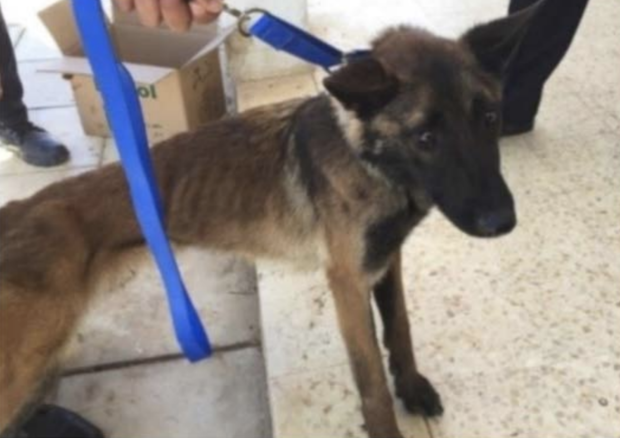US bomb sniffing dogs sent to Jordan dying from poor care

A new report from the State Department found that bomb-sniffing dogs sent from the United States to Jordan are not being cared for properly.
In a lengthy analysis that included photos of dogs with bones protruding from thin bodies, the Office of Inspector General found that “the Department was providing Explosive Detection Canines (EDCs) to foreign partner nations without the proper follow-up to ensure they were receiving adequate healthcare.”
“These allegations also included reports that dogs were dying due to various medical conditions, lack of veterinary care, and poor working conditions,” the report continues.
The dogs were trained in the US. They were sent abroad as part of a anti-terrorism assistance programme "to enhance the ability of their law enforcement to deter and counter terrorism", according to the report.
Previously, dogs were trained under a Bureau of Alcohol, Tobacco, and Firearms initiative. Seventy dogs from that programme remain active in seven partner nations.
As of 2018, 100 bomb-detecting dogs trained at a State Department facility were provided to six partner nations.
Now, the Office of Inspector General (OIG) has found "an overall lack of policies and standards governing the program.” According to the report, the animals are often provided without any signed written agreements or an outline about care, use and retirement.
Read more
Global leaders condemn Netanyahu’s pledges to annex Jordan Valley
In Jordan in particular, the report found problems were consistent. The report detailed specific cases, such as a dog who was found emaciated less than one year after arriving in Jordan. That dog also had faeces in her kennel, and no water in her water bowl.
Another dog from the US had to be euthanised in March 2018 after he became severely ill less than a year after arriving in Jordan. He was diagnosed first with a tick-borne illness, then a second vector-borne disease. He was put down in the US after being flown back for treatment.
The OIG has recommended more frequent check-ups, written agreements that outline polities, and a plan to address canine retirement and adoption. It did not, however, recommend ending the programme in Jordan “until a sustainability plan is in place”.
Last year, a report from the OIG found that dogs sent to Afghanistan were also being mistreated, resulting in "organised chaos."
Read more
Read more Global leaders condemn Netanyahu’s pledges to annex Jordan Valley

 Yahoo News
Yahoo News 

